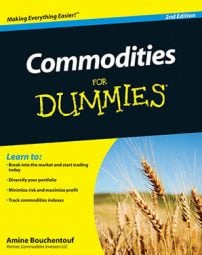When you pick up the phone or log in to your online account and place an order for a commodity, it’s sometimes easy to forget that your order isn’t placed in a vacuum. You place the order and wait for the confirmation number. Seems simple, right? Not quite.
A number of people are involved in making sure that your order is executed as smoothly and efficiently as possible, and your order goes through an extensive supply chain before it’s executed.
The clerk
The exchange’s first point of contact with the outside world is the clerk. The clerk isn’t an employee of the exchange, but is employed by the various commodity brokers who are licensed to conduct business at the exchange.
The clerk works the phones and is responsible for taking down client orders. When the clerk receives an order by phone (and now, increasingly, through e-mail as well), he fills out an order ticket, which he then passes on to the floor broker.
The floor broker
The floor broker (FB) is the one in the large ring shouting and making funny gestures. The FB is responsible for actually executing the order and is on the front lines of every transaction that goes through the exchange during the open outcry sessions. When the FB receives the order ticket from the clerk, it’s her responsibility to find a matching offer and fill the order.
The FB shouts and makes gestures (which are actually derived from American Sign Language) to interact with other brokers and traders in the ring. When she finds a broker or trader who is willing to fill the order, she writes down on the order ticket the time the agreement was entered into.
The floor trader
The floor trader (FT) is different than a floor broker because the FB is licensed to buy and sell commodities on behalf of clients. The trader may trade only on behalf of his personal account. The FT, sometimes known as a “local,” provides much-needed liquidity to the exchange. An FT may be the person who sells or buys a contract from the FB.
When both buyer and seller at the exchange agree on price and other contractual terms, both must write down that the transaction went through on their tickets. However, only the seller is responsible for notifying the exchange that the transaction went through.
He fills out an order ticket with the price, quality, and quantity of the contract, along with the time the transaction took place. He must then physically throw the ticket order to the card clocker.

